Tony Blair: 10 years in power
Key dates in Tony Blair’s 10 years as the British prime minister.
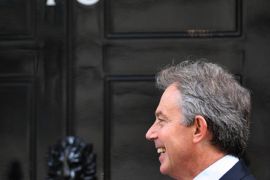
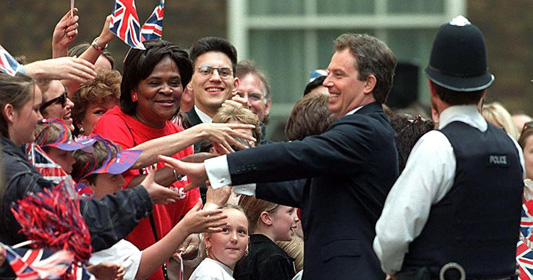 |
Key dates in Tony Blair’s 10 years as the British prime minister
1997
May 2: The Labour party wins the general election and gains a majority in the House of Commons with 179 seats. At 43, Blair becomes the youngest British prime minister since 1812.
May 6: Britain’s central bank, the Bank of England, is given power to set interest rates.
August 31: Blair takes the lead after the death of Diana, Princess of Wales, calling her “the people’s princess”.
1998
April 10: The Good Friday peace accord is signed, allowing power-sharing between Protestants and Catholics in Northern Ireland, decommissioning of paramilitary weapons and the release of militants from prison.
1999
March 24: Britain joins Nato air strikes against Serbia in Kosovo.
May 26: A devolved Welsh assembly opens in Cardiff.
July 9: The Scottish parliament sits in Edinburgh for the first time since 1707.
2000
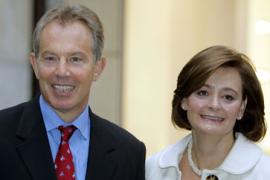 |
| The prime minister’s wife gave birth to a son, Leo, in 2000 |
May 20: Blair becomes the first British prime minister for more than 150 years to become a father in office when his wife, Cherie Booth, gives birth to their fourth child, Leo.
2001
June 8: Labour wins a second term with a majority of 167.
September 11: After al-Qaeda attacks on the US, Blair gives his total support to George Bush, the US president.
October 7: British troops take part in US-led, Nato-backed attacks against the Taliban and al-Qaeda in Afghanistan.
2002
October 14: London resumes direct control of Northern Ireland after allegations of a republican spy-ring operating in the Belfast assembly.
2003
February 16: An estimated one million people protest in London against war in Iraq in the biggest march in British history.
March 18: Parliament backs sending British troops to Iraq.
March 19: US-led invasion of Iraq begins.
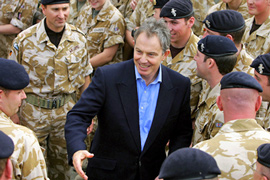 |
| Blair meets British troops in Basra, Iraq [AFP] |
May 26: The BBC says the British government exaggerated intelligence claims about Iraq’s weapons of mass destruction, the basis for going to war.
July 17: British weapons expert David Kelly, the source for the BBC report, commits suicide.
2004
January 28: Government-commissioned inquiry exonerates Blair administration over blame for Kelly’s death and severely criticises the BBC.
October 1: Blair says the 2005 general election will be his last, but he intends to serve a full third term.
2005
May 5: Labour wins a third term with a much-reduced majority of 66.
July 6: London wins the 2012 Olympic Games.
July 7: Fifty-six people are killed and more than 700 injured when four suicide bombers blow themselves up on the London public transport system.
2006
March 21: Police begin the “cash for honours” inquiry into whether political parties accepted loans from wealthy donors in return for places in the unelected upper House of Lords.
September 7: Blair is forced into saying he will step down within a year after Labour opposition to his stance over Israel’s bombing of Lebanon.
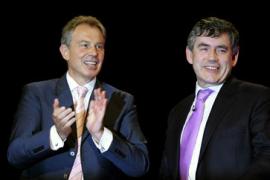 |
| Gordon Brown, right, will succeed Blair as prime minister [AP] |
December 14: Blair is questioned by police over “cash for honours”, making him the first serving prime minister to be questioned as part of a criminal inquiry.
2007
March 29: Parliament applauds Blair for deal to restore power-sharing in Northern Ireland.
May 1: Blair says ally-turned-foe chancellor Gordon Brown would make a “great prime minister,” and confirms he will clarify his departure plans in coming days.
May 10: Blair to announce date he will stand down as Labour party leader and prime minister.
May 19: Blair pays his last visit to iraq as prime minister.
June 20: Al Jazeera reports exclusively that Blair is likely to become the Middle east Quartet’s new envoy after he steps down.
June 27: Blair’s last day as prime minister as he hands over to Gordon Brown.